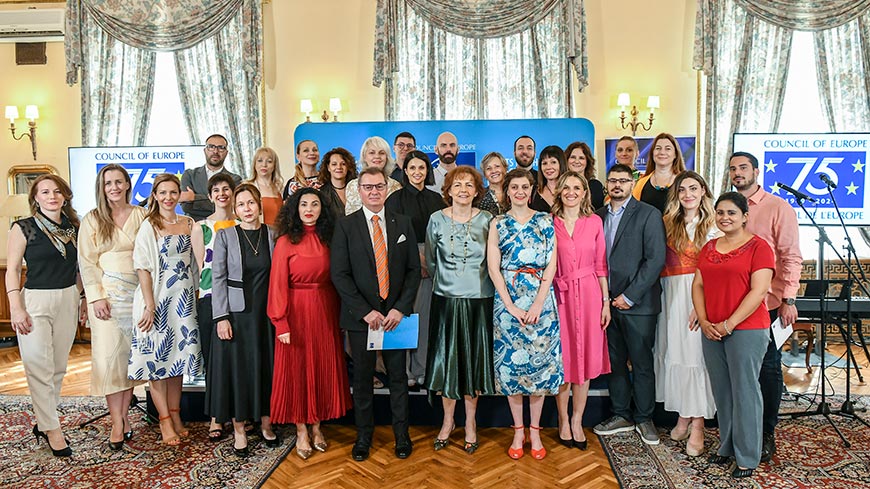On 25 June 2024, representatives of the government, diplomatic corps, media, civil sector, partners and other stakeholders gathered in Belgrade to celebrate 75 years of the Council of Europe as the guardian of democracy, human rights, and the rule of law. Organised by the Council of Europe office in Belgrade, the event aimed at reflecting on the Council's rich history and envisioning its future role in addressing contemporary challenges.
The Secretary General of the Council of Europe, Marija Pejčinović Burić, sent a video message, congratulating Serbia on more than two decades of joint efforts: “Serbia joined our Organisation in 2003. Since then, it has ratified many of our key conventions and participated in the work of our expert and monitoring bodies, so that our values are translated into positive action. For three quarters of a century, the Council of Europe has enabled governments to take the measures they most need to meet European standards. Serbia has its own path on that journey. And we are proud to accompany it“.
Addressing the event, Tanja Miščević, Minister of European Integration of the Republic of Serbia said that “The expertise we receive from the Council of Europe is a key benchmark for all the reforms we are working on in the areas of protecting human and minority rights, especially Roma rights; strengthening the independence of the judiciary and freedom of expression; in the fight against corruption through the recommendations of the Group of States against Corruption (GRECO); as well as all other reforms.”
Also addressing the event, Head of Council of Europe Office in Belgrade, Janos Babity, reminded of the Organisation’s positive impact on people’s daily lives: “Ever since its foundation, the Council of Europe has always responded to the challenges and guided its member states in building a safer, a more tolerant and inclusive future together for all of its citizens. Besides the ongoing activities, our focus will be on the protection of the environment and inclusion of the youth into democratic decision making.”





